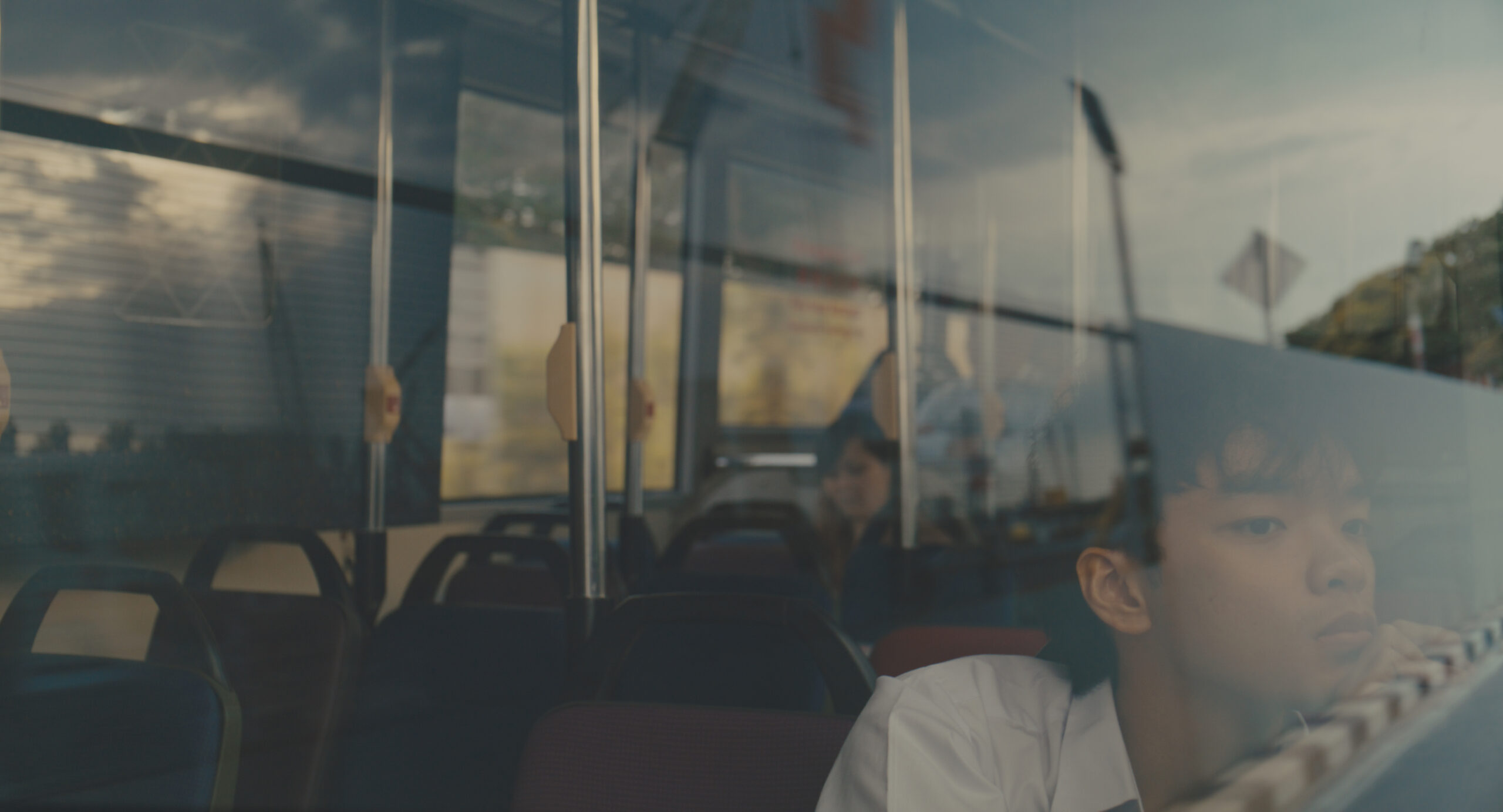Tomorrow Is A Long Time
Ming Tian Bi Zuo Tian Chang Jiu
VERDICT: Taiwanese arthouse A-lister Leon Dai and new actor Edward Tan front Singaporean filmmaker Jow Zhi Wei’s visually enchanting, structurally disciplined first feature.
A bereaved teenager leaves behind his hopeless life in a pitiless city and embarks on a fantastical transformation in the forests of Taiwan in Tomorrow Is A Long Time, the latest in a long line of Southeast Asian films which thrive on an enigmatic epiphany in the tropical wild. Featuring visual metaphors aplenty about the futility of individual existence in contemporary urban life and the possibility of transformation in places with negligible human presence – hell is other people, perhaps, and heaven is where there’s none – this first feature from Singaporean filmmaker Jow Zhi Wei is a melancholy yet enchanting rite-of-passage drama.
Jow’s screenplay is admittedly light on substance and much peppered with glib narrative devices shaped around hot-button social issues of the day, such as hazing rituals among young men or the suffering of illegal migrant workers. Making up for this, however, is the enthralling ambience Jow conjures up with the help of Russell Adam Morton’s cinematography and James Page’s production design. Rarely has the perennially sweltering city of Singapore been made to look so gloomy and downcast, or the bucolic rural landscapes of Taiwan so enigmatic and awe-inspiring.
Despite scoring no prizes at the Berlinale (where it screened in the youth-driven Generation sidebar) or at the recent Hong Kong International Film Festival, Tomorrow Is A Long Time – a co-productions backed by both state institutions and private investments from Singapore, Taiwan, France and Portugal – should generate more bookings on the festival circuit both for its strong visual qualities and its nod at magical realism, so beloved by the cinephiles who adore the work of Apichatpong Weerasethakul. Leading actor Leon Dai will provide the film with additional traction in his native Taiwan and with international audiences who appreciated the creative credentials he earned in Cannot Live Without You, the award-winning black-and-white social realist drama he directed in 2009.
Dai is compelling here as Chua, a brooding middle-aged man who fumigates empty factories and open-air scrapheaps for a living. He never questions the futility of his work – why spray pesticides in disused buildings? – or the harm it does to his already sickly body. The pay packet is what he cares about, and he’s willing to do as much overtime as possible. Jaded to the bone, Chua pays scant attention to the illegal Burmese workers assigned under his watch.
His aloofness carries over to his home life. He offers incense at the altar of his deceased father by rote; he sometimes visits his senile mother whom he moved to a care home, but appears expressionless and emotionless during their meetings. It’s up to his son, the teenaged Meng (Edward Tan), to prod and talk to his dad. The boy asks Chua about his relationship with his own parents, and rifles through his grandmother’s possessions to understand more about his ancestors, living and dead. It might very well be an attempt to hide in the past so as to avoid the present, as the boy is forced to put up with the abuse of a gang of bullying seniors at school.
Chua’s frosty façade and brittle body finally crack when a deadly tragedy strikes at work, leaving him to reflect both on his morality and his mortality. While he unravels, young Meng is coerced into, then framed for, an act of peer violence, forcing him to report early for his compulsory military service.
It’s around this juncture that Tomorrow launches into another gear. At first, Jow seems to have merely replaced Singapore’s concrete forests with real ones as he thrusts Meng into a jungle where he participates in a military drill with his fellow conscripts. There’s an obvious chain of command and powerplay within his troop, complete with bizarre rituals.
The director-screenwriter deserves credit for veering away from convenient parallels here. Rather, the camaraderie among the young soldiers is warm and genuine, and the wide open landscapes seem to provide Meng with a sense of liberation rather than confinement. That remains true even when he finds himself plunged into yet another crisis when something goes awry during field exercises. Meng grows into his role as an independent adult – a process Tan evokes well in his first leading role – while becoming more at peace with his surroundings, a reconciliation with destiny and nature embodied in the film’s final, show-stopping tracking shot.
Having launched his career with short films at San Sebastian, Busan and Cannes more than a decade ago, Jow has waited quite some time before stepping up to features. This perhaps explains why he tries to say so many things here, as if he’s making up for lost time. But Tomorrow Is A Long Time is at its best when it aims for the heart rather than the mind, when it sweeps the viewer along with its striking imagery of apocalyptic junkyards, blazing basements, ravishing forests and rustic village houses, and leaves the reflections about real life to a later time.
Director, screenwriter: Jow Zhi Wei
Cast: Leon Dai, Edward Tan, Julius Foo, Jay Victor
Producers: Fran Borgia, Jeremy Chua
Executive producers: Fran Borgia, Glen Goei
Cinematography: Russell Adam Morton
Editor: Alexandra Strauss
Production designer: James Page
Music: Ting Si Hao
Sound designer: Olivier Dandre, Alexandre Hecker
Production companies: Akanga Film Asia, Volos Films, La Fabrica Nocturna, Potocol, Oublaum Filmes
World sales: Pluto Film Distribution
Venue: Hong Kong International Film Festival (Firebirds Awards, Chinese-Language Cinema)
In Mandarin, English, Burmese
105 minutes

